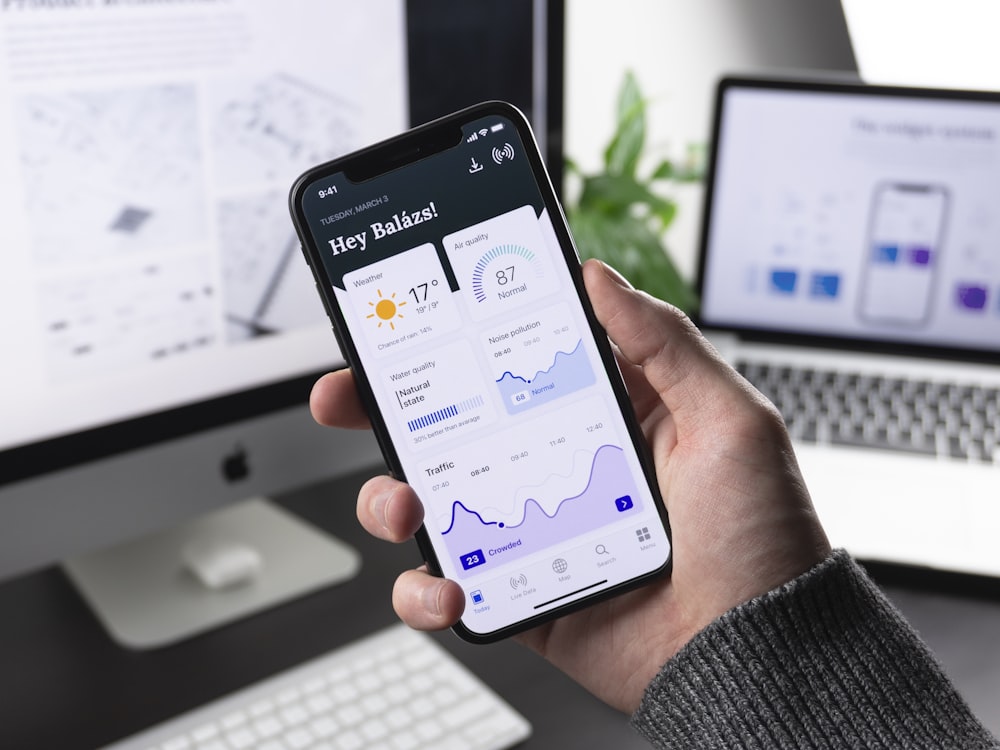
Mobile App Development for Retail Businesses: A Comprehensive Guide
Why Mobile Apps Are Essential for Modern Retail
In today's digital-first retail environment, a mobile app has become an essential component of a comprehensive omnichannel strategy. Mobile commerce continues to grow rapidly, with projections showing that m-commerce will account for over 70% of total e-commerce sales by 2025.
A well-designed retail app serves as a powerful tool for enhancing customer engagement, driving sales, and collecting valuable data that can inform your broader business strategy.
Key Benefits of a Custom Retail Mobile App
- Enhanced Customer Experience: Provide a seamless, personalized shopping experience optimized for mobile devices.
- Increased Customer Loyalty: Implement loyalty programs, personalized offers, and exclusive app-only content to encourage repeat business.
- Higher Conversion Rates: Mobile apps typically convert at higher rates than mobile websites due to improved usability and stored payment information.
- Valuable Customer Insights: Gather detailed data on shopping behaviors, preferences, and patterns to inform your retail analytics strategy.
- Improved Marketing Capabilities: Leverage push notifications and in-app messaging for targeted, timely communications.
- Streamlined Checkout Process: Implement one-click purchasing and integrate multiple digital payment options for frictionless transactions.
Essential Features for Retail Mobile Apps
A successful retail app should include these core features:
| Feature | Purpose |
|---|---|
| User-friendly product catalog | Easy browsing and searching of your complete inventory |
| Personalized recommendations | AI-driven suggestions based on browsing and purchase history |
| Secure payment processing | Multiple payment options with streamlined checkout |
| Order tracking | Real-time updates on order status and delivery |
| Loyalty program integration | Point accumulation, rewards, and special offers |
| Store locator with inventory | Find nearby stores and check product availability |
| Barcode/QR scanner | In-store price checking and additional product information |
| Wishlist functionality | Save items for future purchase consideration |
| Push notifications | Timely, relevant communications about offers and events |
| Customer support integration | In-app chat or WhatsApp integration for customer service |
Technical Considerations for App Development
When planning your retail mobile app, consider these technical factors:
- Native vs. Cross-Platform Development: Native apps offer the best performance but require separate iOS and Android development. Cross-platform frameworks like React Native or Flutter can reduce development costs while maintaining good performance.
- Backend Integration: Your app needs to integrate seamlessly with your POS system, inventory management, customer database, and e-commerce platform.
- Scalability: Design your app architecture to handle growth in users, products, and functionality.
- Security: Implement robust security measures for protecting customer data and payment information.
- Analytics Implementation: Integrate analytics tools to track user behavior and app performance.
- Offline Functionality: Consider which features should work without an internet connection.
The App Development Process
Developing a successful retail app typically follows these stages:
- Strategy and Planning: Define objectives, target audience, and key features.
- UX/UI Design: Create intuitive, attractive interfaces optimized for the mobile experience.
- Development: Build the app using appropriate technologies and frameworks.
- Integration: Connect the app with your existing business systems.
- Testing: Conduct thorough testing for functionality, usability, performance, and security.
- Launch: Release the app to app stores and implement a marketing strategy.
- Maintenance and Updates: Continuously improve the app based on user feedback and changing business needs.
Measuring Success and ROI
Track these key metrics to evaluate your app's performance:
- Downloads and active users
- Session length and frequency
- Conversion rate and average order value
- Customer retention and lifetime value
- App store ratings and reviews
- Feature usage and user flow analysis
Future Trends in Retail Mobile Apps
Stay ahead of the curve by considering these emerging technologies for future app updates:
- Augmented Reality (AR): Virtual try-on features and immersive product visualization.
- Voice Commerce: Voice-activated search and shopping functionality.
- AI-Powered Personalization: Increasingly sophisticated recommendation engines.
- IoT Integration: Connection with smart shelves, beacons, and other in-store technology.
- Social Commerce Features: Seamless integration with social media platforms.
Conclusion
A well-designed mobile app can transform your retail business by enhancing customer engagement, streamlining operations, and driving sales across channels. By focusing on user experience, seamless integration, and continuous improvement, you can create an app that delivers significant value to both your customers and your business.
To learn more about enhancing your digital customer experience, check out our article on customer experience in digital transformation.